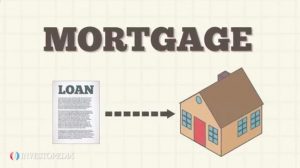Embarking on a home renovation project or investing in property can be an exciting venture, but it requires careful financial planning to ensure success. Whether you’re sprucing up your current home or considering a new investment, here are some valuable tips to help you budget effectively, understand mortgage options, and maximize your return on investment (ROI).
Budgeting for Home Renovations
1. Set Clear Goals: Before you start any renovation project, define what you want to achieve. Are you looking to update a single room, improve energy efficiency, or increase your home’s overall value? Clear goals will help you prioritize expenses.

Use S.M.A.R.T as a guideline for goal setting. Goals should be Specific, Measurable, Achievable, Realistic and Timely.
2. Research and Plan:
- Get Estimates: Obtain quotes from multiple contractors to get a realistic idea of costs. Don’t forget to include permits, materials, labor, and contingency funds (typically 10-20% of the total budget) for unexpected expenses.
- DIY vs. Professional Help: Determine which tasks you can handle yourself and which ones require professional expertise. DIY projects can save money but might not be suitable for complex renovations.
3. Create a Detailed Budget:
- Itemize Costs: Break down the renovation into specific tasks and estimate costs for each. This includes materials, labor, permits, and any additional fees.
- Track Expenses: Use budgeting tools or apps to monitor spending and stay within your budget. Regularly update your budget to reflect actual costs versus estimates.
Understanding Mortgage Options 
1. Know Your Mortgage Types:
- Fixed-Rate Mortgage: Offers a stable interest rate and monthly payments over the loan term. Ideal for long-term planning and budget stability.
- Adjustable-Rate Mortgage (ARM): Has an interest rate that can change periodically, typically offering lower initial rates. Suitable for short-term stays or if you plan to refinance before the rate adjusts.
- FHA Loans: Backed by the Federal Housing Administration, these loans are great for first-time buyers or those with lower credit scores, requiring lower down payments.
2. Consider Refinancing: Refinancing your mortgage can help lower your monthly payments or shorten your loan term. Evaluate current interest rates and your financial situation to see if refinancing makes sense for you.
3. Factor in Additional Costs: Don’t forget about closing costs, property taxes, and homeowners insurance when calculating your mortgage budget. These additional expenses can impact your overall affordability.
Maximizing ROI on Property Investments
1. Choose the Right Location:
- Research Market Trends: Look for areas with strong growth potential, good schools, and amenities. Proximity to public transportation and employment hubs can also enhance property value.
- Understand Local Regulations: Be aware of zoning laws, property taxes, and any potential development plans that could impact your investment.
2. Focus on High-Impact Improvements:
- Kitchen and Bathroom Upgrades: These areas typically offer the highest ROI. Invest in modern, functional designs with quality materials.
- Curb Appeal: First impressions matter. Invest in landscaping, exterior paint, and entryway improvements to boost your home’s appeal.
- Energy Efficiency: Upgrades like new windows, insulation, and energy-efficient appliances can attract eco-conscious buyers and reduce utility costs.
3. Rent vs. Sell:
- Evaluate Market Conditions: Determine whether it’s more profitable to rent out your property or sell it. Consider factors like rental demand, property appreciation, and your long-term financial goals.
- Rental Property Management: If you choose to rent, decide whether to manage the property yourself or hire a property management company. Professional management can save time and ensure efficient operations.
Final Thoughts
Effective budgeting and smart financial planning are key to successful home renovations and property investments. By setting clear goals, understanding your mortgage options, and focusing on high-impact improvements, you can make informed decisions that enhance your property’s value and ensure a strong return on investment. Remember, every financial decision should align with your overall goals and lifestyle, ensuring you create a home and investment portfolio that truly works for you.
Got questions? Reach out to Kent McCown Group – we are always happy to help!


 Facebook
Facebook
 X
X
 Pinterest
Pinterest
 Copy Link
Copy Link







